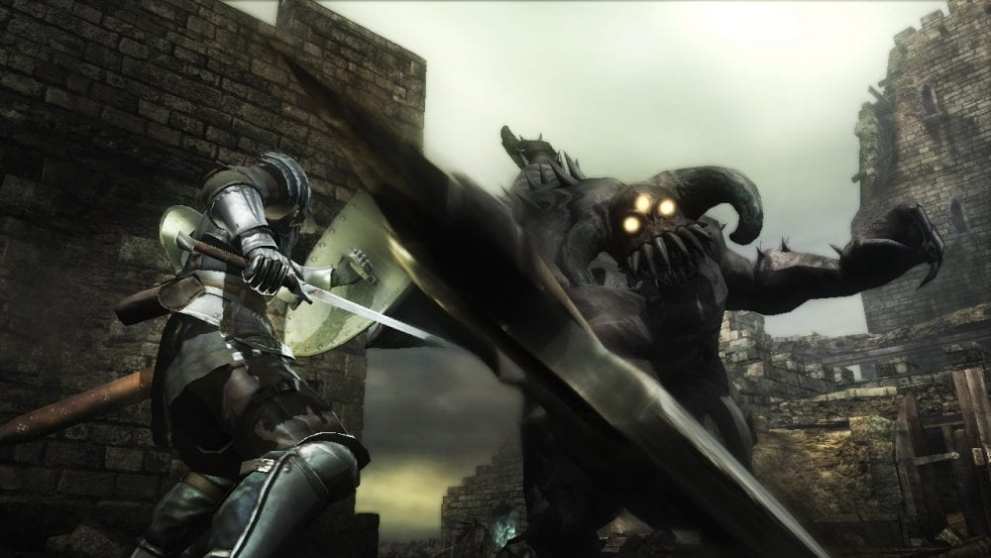Metal Gear Solid V: The Phantom Pain

The Assassin’s Creed franchise took a much-needed rest for two years, birthing what could very well be a rejuvenated mainstay for seventh generation consoles and beyond in the form of Assassin’s Creed Origins. It’s clear that the developers working on the game sought inspiration from the gaming industry as a whole to bring their intricate vision of Egypt to life. The following is a list of modern titles that Origins clearly borrowed from in order to make it the rich, rewarding experience it truly is.
Hideo Kojima’s last game under Konami is as breathtaking as it is influential. For the first time in the series, Metal Gear Solid V: The Phantom Pain gave players total freedom in how they wished to achieve objectives. Be it from ordering allies to take out enemies from afar, sneaking into a base and taking down soldiers one by one, or going in guns blazing, Metal Gear Solid V not only reinvented the Metal Gear franchise as a whole, but gave new definition to the often over-exaggerated phrase “player choice.”
It’s clear that Assassin’s Creed Origins borrows this mechanic in its own outpost infiltration. Seeing as how there are different skill paths to follow, each providing different approaches to gameplay in Hunter, which focuses on archery abilities, Warrior, which favors brute force, and Seer, which focuses on the use of tools and tricks like smokescreens, Origins allows players to customize Bayek’s fighting style as they see fit, just like with Venom Snake. Each of these paths overlap too, meaning it’s very possible to mix and match skills to one’s liking.
It’s also worth noting that the ability to momentarily stop time when spotted in stealth in Assassin’s Creed Origins is a very literal lift from the Phantom Pain, though it feels much more like a tribute than it does a copycat.
The Witcher 3: Wild Hunt

The Witcher 3 set an extraordinary precedent for modern RPGs upon its release. Featuring an expansive world with an overwhelming amount of activities to do, the game ensured that no player who was fortunate enough to experience it ever had any shortage of adventures to take on. The world of The Witcher 3 felt alive, as NPCs went about their regular lives as townsfolk would in the real world, conducting their business within an astounding visual landscape. It’s not a stretch to say that the game fleshed out what makes video games such an immersive experience to begin with, really.
Egypt lives and breathes in much the same way in Origins. Throughout the player’s journey, he or she will be obligated to encounter numerous NPCs in order to level up and progress through the story. The resulting side-quests lead Bayek across various desert locales and monuments like the pyramids and ancient tombs, in the process discovering a myriad of historical objects that give an accurate representation of the past. The Witcher 3’s open world sets to immerse players in the immense lore and mythos of the franchise whereas Assassin’s Creed Origins does the same, albeit in a somewhat real life context. Needless to say, each succeeds splendidly.
Souls

Arguably the greatest draw of any Souls game is its combat. Every move or action must be calculated yet instinctual, forcing the player to study the intricacies of each title lest they die over and over again. Though dying in most games is usually a bad sign, the Souls series makes it integral to the learning experience, thus earning it the niche popularity its enjoyed for quite some time now. Souls games taught the industry that introducing a challenge to players can make for more rewarding gameplay, as long as that challenge is within reason.
Though it seems like every game is compared to the Souls series today (to the point where the phenomenon is a meme), it’s very easy to see the franchise’s influence in Assassin’s Creed Origins’ combat. This newest entry in the series has eschewed the Batman: Arkham Asylum-style gameplay in favor of making players constantly keep track of their surroundings. Attacks and defensive capabilities are mapped to opposite ends of the controller, meaning players have to alternate between actions in the heat of the moment. Enemies strike all at once too, whether from far away or close range, and AI capabilities have improved greatly. Gone are the days where combatants idly stand there and wait for the player to kill them. In Assassin’s Creed Origins, everyone genuinely feels as if they’re fighting for their life, including players themselves.
Batman: Arkham Asylum

Though the Batman: Arkham Asylum-style combat is gone, the series still manages to find a place with Origins. It’s not surprising, considering how the Warner Bros. franchise captured the complex aspects that make the Dark Knight great so well, including his alternate handle as “The World’s Greatest Detective.”
The detective abilities that were popularized in Batman make their way in a variety of main missions and side-quests in the newest Assassin’s Creed. Though the detective mode from previous entries is gone, Bayek is given the ability to scan areas in an environment to discover points of interest or evidence to aide an investigation. Items and people alike can be interacted with in order to solve puzzles at hand too, bestowing a familiar sense of accomplishment when an ancient case is solved. This is just as players had first experienced when discovering what new tricks were up Joker’s selves, making for a very welcome return in Origins.
Far Cry Primal

Ubisoft games tend to share some things in common. Far Cry, Watch Dogs, and Assassin’s Creed have for years borrowed various aspects from each other, making for expected yet still addictive mechanics that sink their teeth into players, especially the innate desire to explore and conquer. The one game from Ubisoft’s catalog that Origins feels most inspired by is Far Cry Primal, perhaps because each is set within a prehistoric setting, though it’s arguable that any title in the Far Cry franchise may have served as a stepping stone.
For starters, the hunting and crafting aspect from Far Cry Primal plays a big role in upgrading and maintaining weapons and equipment in Assassin’s Creed Origins. A variety of wildlife can be marked and hunted for hide and other raw materials that are integral to advancing in the game, actually, with the title specifically listing which components are required. On the subject of marking, both Far Cry and Origins share the feature, with Primal allowing players to mark points of interest through a feathered friend just as in Origins’ Senu. Though these similarities may seem repetitive at a glance, their continued implementation in Ubisoft titles is proof of how satisfying the feel of crafting a much-needed item or tracking down a rare hide truly is. That’s not to mention that there are lots of outposts to liberate in Origins too, because who doesn’t feel accomplished after staking out yet another new territory?
What other great games clearly influenced Assassin’s Creed Origins? Let us know in the comments below and try not to stay out in the sun too long.
